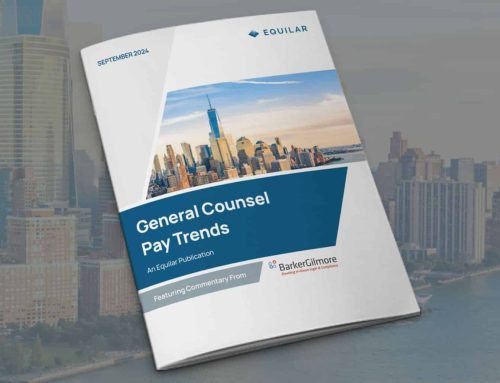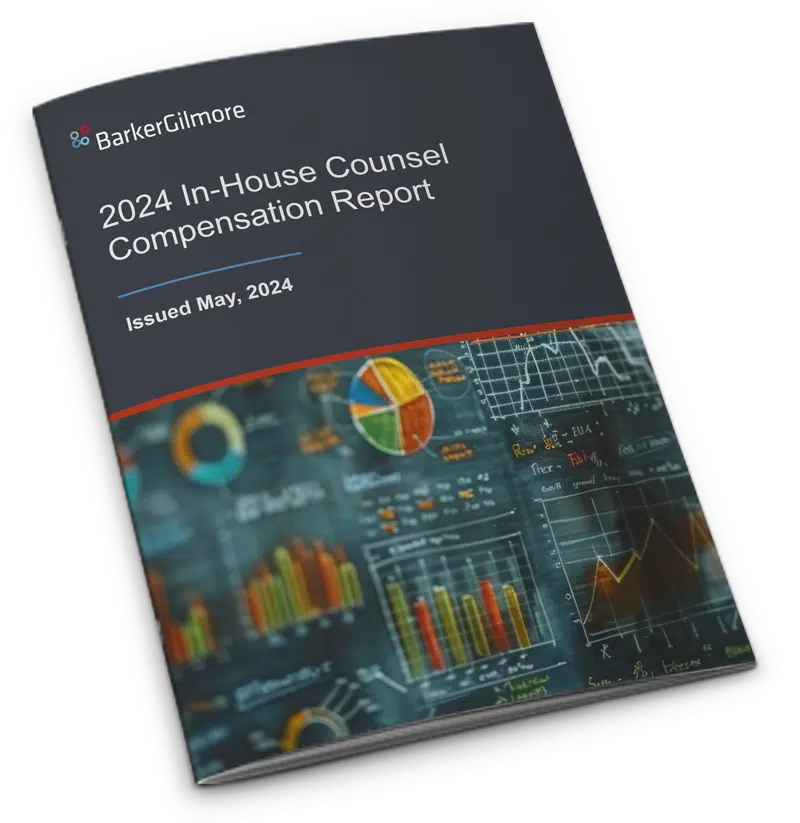Whether you’re working to hire a General Counsel (GC) successor, or your first GC, finding and attracting the right candidates are the first priorities, demanding thoughtful planning and disciplined execution.
But attracting is not the whole game; you still have to close the best candidate, and that means the right compensation package, where “right” means the correct combination of total direct compensation (TDC), the right mix of compensation features, and the right perquisites necessary to seal a candidates’ commitment.
What Makes Compensation Right?
Landing your top candidate means getting your offer right the first time, which you can only achieve with solid insights on both your candidate and the market. And the right offer isn’t just about getting the candidate to commit. It’s also about a structure and upside that keeps the candidate motivated and committed to build a long-term career with your company.
Understand Position Expectations
We’ve written previously on the importance of defining the position accurately (How to Find and Attract the Right GC Candidate) as part of candidate attraction. It’s equally important to use that position definition, current and future, in determining compensation. Knowing the scope of responsibilities, and understanding how it impacts the risk this position will be exposed to over time, are critical elements to consider.
Know Your Candidate
When it comes to knowing your candidate, there are two important areas that need to be explored. Any candidate who deserves to be considered for your GC position has the connections to learn what peer companies pay their GCs. You need to learn how that market knowledge translates to personal expectations.
The other necessary insight is learning what the candidates might be leaving behind, because you’ll want to address that in your offer. Most have options maturing, non-equity incentives paying in the near future, or other golden handcuffs intended to keep them where they are. Anyone worth pursuing won’t walk from money they’ve earned without some reasonable make-good.
Candidate personality, values, and lifestyle aspirations should also enter into your deliberations. Views on risk/return balance, anticipated growth pace, and the “what matters” individual balance sheet, could all be important pieces of how comp is structured and how different elements are weighted. For example, how much is performance-based, and how important are lifestyle perks that are more gesture than anything? The right touches could have very low relative costs and make a tremendous impact on how the candidate views your offer.
Knowing the candidate deeply, insures that you build a custom-structured package. This will demonstrate how much the enterprise values their candidacy and how eager the executive team is to bring them on board.
Know the Market
Your ability to package and confidently present a winning comp program is directly dependent on the knowledge you have about the market. The importance of market knowledge and the role market knowledge plays in developing winning comp packages are the main reasons we continue to collaborate with Equilar, the leader in executive compensation data. A great starting point to understand the GC comp market is the General Counsel Pay Trends Report, an Equilar study featuring commentary by BarkerGilmore partners.
What you’ll learn from this study is the degree to which TDC stratifies by company size, industry sector, and tenure, and TDC structure differences across the same variables. It’s also important to understand that in general, public company GC comp will be higher for comparable private companies, primarily due to the heightened risk a public company GC shoulders.
Understanding the marketplace, the prevailing trends, and the factors that drive comp serve two valuable functions as you prepare to close your best candidate:
- Having an objective understanding of the market for companies of your size, sector, and aspirations allow you to be deliberate and intentional in deciding where you need to be in TDC and the mix of the appropriate comp components. With access to this type of data, there’s no reason to err and potentially disappoint the most qualified candidate.
- You have the opportunity to close with complete confidence in the knowledge that the package you’re presenting is attractive, appropriate, and a good fit for your candidate. Selling with that knowledge as a part of your pitch will demonstrate the careful due diligence conducted as background, removes potential uncertainty about the quality of the offer, and makes for an exuberant acceptance.
It’s not enough to just attract great GC candidates into consideration. Closing on the right candidate and positioning them for a long-term commitment is the result that matters most, and you can put yourself in the best position to achieve this goal by putting the right work into the comp package development. That way both you and the candidate can have complete confidence that the package is on target in expressing your most positive views on the value they’ll bring to your company, and the value your company provides them.
Connect with a legal recruiting advisor
* indicates required fields







